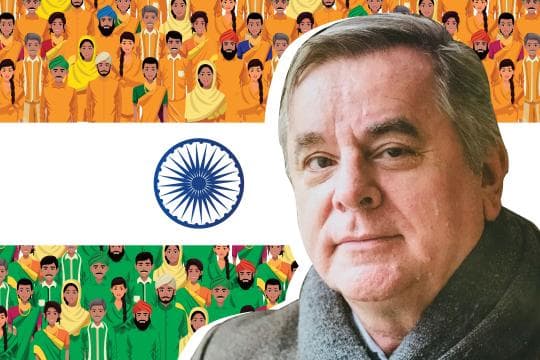India's Unity Secret Could Be Australia's Game Changer!
Discover how Oz can learn from India's mastery of diversity, uniting cultures, religions, and languages Down Under!

Throughout my years in Australia, I've been particularly drawn to observing the interplay between various faiths and cultures, a fascination that's offered me profound insights into the dynamics of cultural integration and identity. Australia, with its unique positioning between European and Australasian identities, serves as a fascinating backdrop for these observations, highlighting the complexities of cultural and religious coexistence.
However, it's through the lens of India's approach to managing diversity that one can truly appreciate the art of fostering a multicultural society. Unlike Australia, where misunderstandings about Eastern religions have sometimes led to a sense of 'othering,' India's historical tapestry is woven with the threads of myriad cultures, religions, and languages, creating a vibrant mosaic of coexistence.
India's model of diversity management is not without its challenges, including the issues in Kashmir and occasional tensions between communities. Yet, the country's constitutional democracy lays a solid foundation for rights and freedoms, allowing for a relatively peaceful cohabitation of diverse groups. The presence of Muslims in high-profile roles across various sectors, including Bollywood and politics, contradicts the narrative of widespread discrimination and underscores the nation's commitment to inclusivity.
Reflecting on personal experiences, I'm reminded of an opportunity I once had to study at Aligarh Muslim University in India, thanks to a scholarship offered by an Indian business family. This gesture itself is a testament to the Indian ethos of embracing and nurturing diversity. The regret of not accepting this offer stays with me, especially when considering the success of a friend who took the opportunity and has since made significant academic contributions in Europe.
India's engagement with its diverse populace goes beyond mere tolerance to actively celebrating the multifaceted nature of its society. Cultural events, interfaith dialogues, and academic collaborations are commonplace, fostering a sense of unity in diversity that many countries strive to achieve.
Moreover, the country's role on the global stage is increasingly significant, with its vibrant democracy and economic growth attracting international interest. The deep cultural ties and mutual respect between India and Bosnia point to the potential for further collaboration and mutual learning. Bosnia maintains an embassy in Delhi to deepen bilateral relations, while India's ambassador in Budapest is also accredited to Bosnia.
In conclusion, India's management of its diverse society offers valuable lessons for the world, showcasing the power of inclusive governance, respect for all cultures, and the importance of embracing diversity as a strength. The journey of understanding and appreciating this diversity is not just about acknowledging the challenges but also celebrating the successes and the vibrant life that flourishes within this framework. It's a reminder that, in the face of growing global divisiveness, the path to harmony lies in recognizing and cherishing our shared humanity.



































